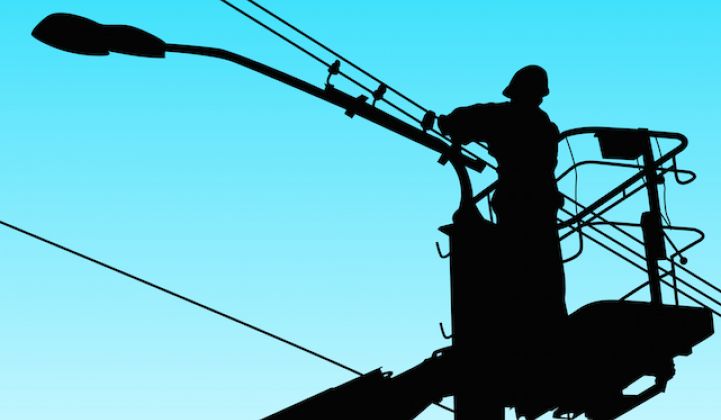The 20th-century electric grid is an extraordinary feat of engineering that has been a core driver of economic progress in developed countries. But it's finally starting to show its limitations in the 21st century.
The grid of the past valued what was once necessary: centralization, powerful and cheap fossil fuels, and a regulatory compact that allowed monopoly utilities to serve the widest area possible.
But the emerging grid -- or at least the grid that people hope will emerge -- values an entirely new set of objectives: environmental performance, two-way communication, more business competition and more consumer technology choice.
Those two paradigms are often diametrically opposed to one another, which is why traditional utilities and advocates of change are now clashing like never before.
But what if we could build the grid all over again for a fully developed economy with the IT and energy technologies available today? Many organizations and thought leaders are asking that question. Siemens even built an online game around the concept.
In response to the growing conflict between the solar industry and utilities, the Solar Electric Power Association (SEPA) also decided to ask the question at this week's Solar Power International conference.
The organization said it would soon start soliciting ideas from power companies, think tanks, engineers, vendors and anyone else with ideas for how to restructure the grid to handle today's new energy technologies.
SEPA rolled out a cryptic new website promoting the concept, which it calls the 51st State.
"The 51st State is a place with no predefined electricity market. There are no rules, no market designs, no policies, no subsidies for any type of energy resource. There is a grid to deliver electric power from a variety of sources, including solar. Most of all, there are customers," reads the website.
SEPA will start taking applications in late November. Over the following months, an independent panel of experts will sift through the plans and pick the best five. The ideas will then be promoted by the organization at events and regulatory meetings.
SEPA is a nonprofit focused on educating utilities about solar. It doesn't take policy positions as its cousin, the Solar Energy Industries Association, does. Mike Taylor, SEPA's director of research, said the 51st State competition is a natural extension of its mission.
"We’re unlikely to take sides. We see our role on this as creating a dialogue and forum. This kind of crowdsourcing can help change the nature of the conversation," he said.
Taylor said he's eager to see the broad range of ideas proposed.
"It could be anything. Some might want to see a variation of the current system. Another person might want to blow up the entire utility industry. Others may want to do what New York is doing to reform utilities -- there are so many options."
What would you do?
SEPA will start accepting plans on November 17. Start sharpening your pencils.



